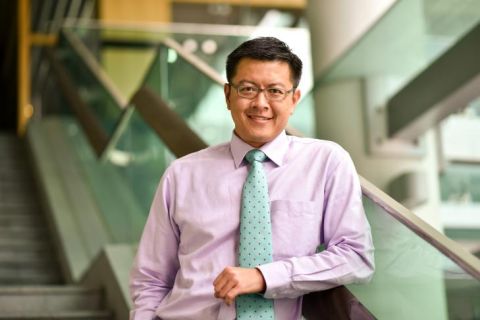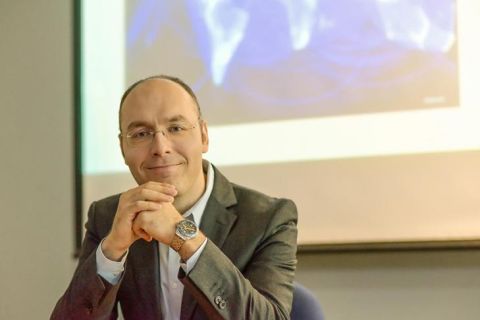
Research at the SMU Lien Centre for Social Innovation is helping to better understand and respond to the needs of vulnerable communities in Singapore.

By Dora Yip
SMU Office of Research – What it means to be poor or vulnerable in today’s society is not as obvious as it was a decade ago. The vocabulary of poverty in low income countries, traditionally expressed in ‘one dollar a day’ terms, no longer conveys an insightful picture of what causes people to struggle in Singapore’s bustling metropolis. These changes are forcing researchers to completely re-think their approach to understanding Singapore’s social needs.
“Our society is facing issues that it hasn’t had to deal with before. More and more conversations are taking place about how some segments of the middle class struggle to make ends meet, and what it means to ‘succeed in life’ here,” says Associate Professor John Donaldson, senior research fellow at the Lien Centre for Social Innovation (LCSI) – a partnership between the Lien Foundation and Singapore Management University (SMU) that aims to advance the thinking and capability of the social sector.
Putting action into research
The SMU Change Lab, one of LCSI’s main platforms, aims to use what they call ‘action research’ to better understand and respond to the needs of vulnerable communities in Singapore. Researchers at the SMU Change Lab work with community members, Voluntary Welfare Organisations (VWOs) and students to collect, share and query qualitative primary research in actionable ways – by designing new or improved needs-based social services based on the research, for example.
“Action research is useful because we can better understand the issues people face, and at the same time, make a difference in their lives. Many research projects end up gathering dust on shelves, so it’s been exciting to participate in work that’s designed to have an impact on study participants,” says Dr Cate Smith, research associate at LCSI.
The SMU Change Lab builds on the LCSI’s seminal 2011 report on unmet social needs in Singapore. The first-ever study identified gaps in the social protection system, and community groups most affected by these gaps. It focused on six groups: the disabled, the mentally ill, single-person-headed poor households, silent workers, foreign workers and new communities.
But the 2011 report had certain limitations, Professor Donaldson notes, as it was based on secondary research from newspapers, existing policies and online sources. “There was no interviewing at all. SMU Change Lab picks up from there and goes deeper into these needs by talking to communities, the government and VWOs,” Professor Donaldson explains.
At the core of SMU Change Lab is collaboration, says Ms Ranjana Raghunathan, programme manager at LCSI. Researchers work with VWOs, SMU students and community members to carry out qualitative primary research. They then apply their findings to specific issues that affect vulnerable communities. “The voices of people from these communities play a prominent role in policy suggestions and programme design. This is the most exciting thing for me,” she says.
Social isolation of elderly residents living in Ang Mo Kio
One vulnerable portion of society that SMU Change Lab is helping through action research is a group of socially isolated elderly residents in an Ang Mo Kio neighbourhood. It all began with a sobering observation: A VWO partner of LCSI, which was conducting successful programme activities for seniors, had to turn away elderly residents who were living outside its service area due to insufficient funds to cater for a larger clientele.
“We suggested to that VWO partner to let us find out the needs of this group of elderly who were being turned away,” Professor Donaldson recalls. “We made a list of possible needs, one of which was social isolation, which you may not link directly to poverty itself.” From the study, SMU Change Lab researchers found that one-third of the elderly residents they spoke to could be considered socially isolated – one that was linked to poor measures for mental well-being.
The study also revealed subtle yet crucial insights into what was affecting the elderly’s mental well-being. For example, whether elderly residents lived with their children or not did not prove to be a significant factor in their mental health status. Rather, it depended on the quality of their relationships with their children and grandchildren, and whether they had somebody they could count on in times of need.
Central to SMU Change Lab’s reports on vulnerable communities are the participants’ narratives. One of them involves an elderly resident who is now living alone after his wife passed away two decades ago. His eldest son had committed suicide and his married daughter currently lives far away. The senior said that he had nothing to eat, preferring to sleep as much as possible throughout the day.
“I was most struck by some of the participants who have had so many challenges, and have grown so isolated, that they seemed to have little hope left. Our analysis plays a part, but the voices of the participants drive each of the reports,” Dr Smith says.
Building social resilience
The work of SMU Change Lab and its partners has already borne fruit in the community. Following their research on social isolation of the elderly, they engaged the community through a creative exhibition put together by SMU students and the seniors themselves, right in the neighbourhood where the seniors lived. “Through the exhibition and social conversations, we were able to gauge if our findings made sense and whether they validated what VWOs already knew on the ground,” Professor Donaldson says.
In July 2015, it will release three full-length reports – on the elderly, low-income single-parent families, and people with physical disabilities, respectively – focusing on the unmet social needs of these vulnerable communities in Singapore. Also in the pipeline is a handbook on poverty and inequality that will enable time-strapped VWOs to easily refer to existing research when carrying out social services.
Overlooked needs have also been uncovered through SMU Change Lab’s new study on food insecurity among Singapore’s vulnerable communities. The team became interested in this topic after interviewing the elderly and single mothers for other projects, including the one on social isolation.
“We found that many in this group were not getting enough to eat. They were having one or two meals a day and scrounging for their next meal,” says Professor Donaldson. Together with a VWO with knowledge in this area, the team has applied for a grant to study food security issues among low-income working families, where at least one person works outside the home.
Through building resilience and sustainability in communities, SMU Change Lab’s work brings to life the university’s 2025 vision of tackling the world’s complexities and impacting humanity positively. Jonathan Chang, executive director of LCSI, sees the programme as a neutral platform that can bring all sectors together. “Our aim is to promote sustainable change – not just an incremental upgrade – to social issues,” he says.
Adds Professor Donaldson, “Universities must play a part in building a resilient society. We can do this by generating research that is not only rigorous but also actionable; something that people can act on in a productive way that will bring Singapore closer as a caring community.”
See More News
Want to see more of SMU Research?
Sign up for Research@SMU e-newslettter to know more about our research and research-related events!
If you would like to remove yourself from all our mailing list, please visit https://eservices.smu.edu.sg/internet/DNC/Default.aspx

